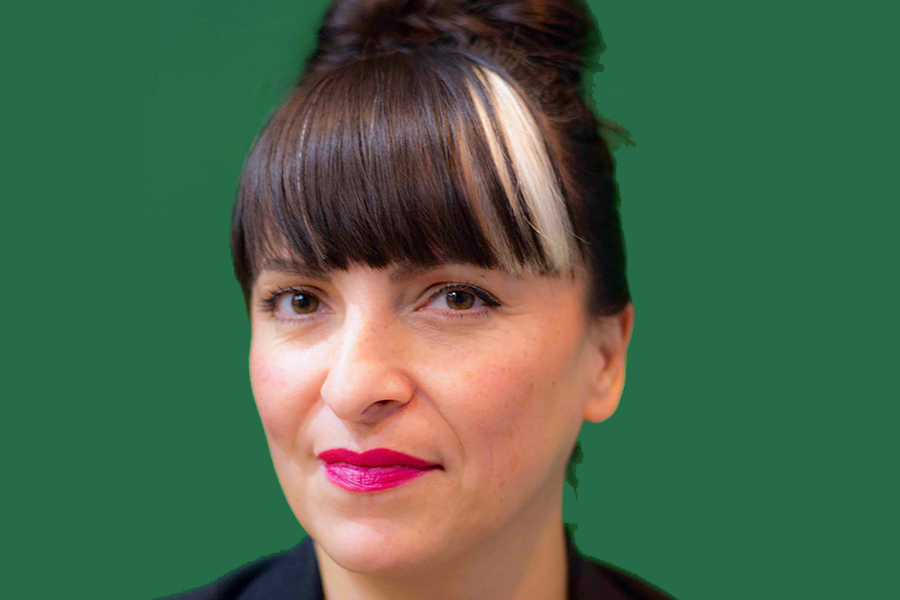Elicia Gonzales applied for what she called a “dream job” with the Women’s Medical Fund, a local advocacy organization to protect and expand abortion access to low-income women. Following a search by a six-member Succession Task Force, the organization’s board of directors announced Gonzales as the executive director.
“I’ve been really concerned about sexual and reproductive health from as far back as I can remember and this is a culmination of my personal and professional worlds intersecting in this really powerful, solid and instrumental organization in Philadelphia,” the 42-year-old said. “I feel like all points of my life are converging on this particular opportunity right now.”
Gonzales will take on the position previously held by Susan Schewel.
“I’m so happy to be welcoming Elicia Gonzales as my successor,” Schewel said in a statement. “I am excited to see how WMF grows under her leadership as she utilizes her experience and skills to carry WMF into the future.”
Gonzales began working in the nonprofit world in Denver, Colo. There, she worked for Planned Parenthood and was a founding board member of COLOUR (Colorado Organization for Latina and Opportunity and Reproductive Rights). Her passion for this work led her to earn two master’s degrees in social work and education. Additionally, she became a professor of sexuality at Widener University, a therapist and a program manager. She currently serves on the boards of Bread & Roses Community Fund, Camp Sojourner Girls’ Leadership Program and Planned Parenthood Southeastern Pennsylvania.
“I recognized very early on that a person having agency over their own body was of the utmost importance of having a healthy and whole society,” Gonzales said.
She also served as the executive director of GALAEI, a queer Latinx social-justice organization. She said her executive-director experience, in addition to her work in reproductive justice, has positioned her well for this new role.
“I think having served as the executive director of GALAEI for six years really helped to cement my feet into the realities of what is needed to successfully run a small organization,” Gonzales said. “You learn the dos and don’ts by going through that experience. There were many things that I look back on [that I] would have potentially done differently and, moving forward, will certainly enact in my role at Women’s Medical Fund.”
Through her work, Gonzales made many contacts with whom she hopes to maintain relationships in her new position. She noted, “The bulk of this funding comes from everyday folks who recognize the injustices and threats to reproductive health.”
“I absolutely will, and already have, reached out to folks who I have connected with over my years to let them know I will be contacting them to find out ways in which they can be brought into our work,” she said.
Gonzales noted how low-income women and women of color are largely impacted by lack of access to abortion and reproductive services.
“As a queer Latina, my own personal experiences of my sexuality [and] of my relationship to having gone to a crisis pregnancy center, for example, situate me in a different way that will allow these conversations to evolve,” Gonzales said.
She added that she plans to use gender-neutral language and take race, class, religion, ability and other identities into consideration in all of the agency’s operations. She also wants to ensure those who are most impacted are centered in these conversations.
“That’s something we’re going to continue to work on as an organization regarding finding out: What are the specific needs? What are the specific resources that these folks come to the table with?” Gonzales said. “We want to be able to shine a light on that and really demonstrate how poverty, sexism, racism and patriarchy can really impact a person’s decision to make the safest and healthiest decision for themselves.”
Moving forward, Gonzales said the nation is at a “really critical juncture” due to the political climate, and said she is looking forward to harnessing this energy.
“People feel ramped up to give up their time or to give up their resources,” Gonzales said. “To be able to harness some of that anger and frustration, as well as enthusiasm and motivation to ensure that folks have access to abortions and all other pregnancy-related care, I feel really excited about it. I think people are stepping up in ways that we haven’t seen before. The ‘Trump-thought,’ if you will, is exciting for me because it’s going to allow me to channel a lot of these feelings of complete hopelessness and anger into a positive direction.”

